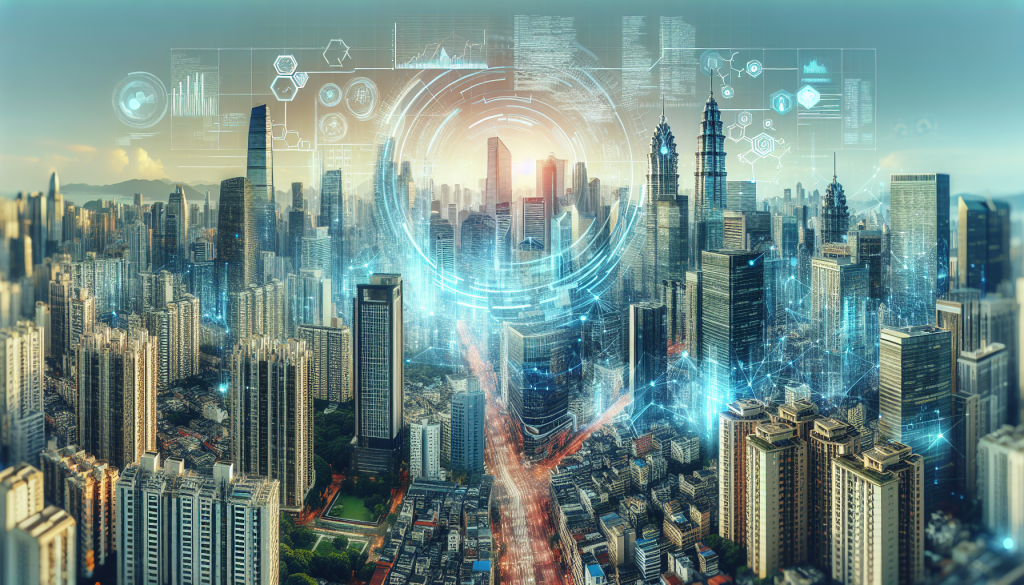
Artificial Intelligence (AI) is no longer a mere concept reserved for science fiction. It has firmly planted itself within our everyday lives and is shaping the course of global economic growth. Its potential to drive significant economic transformation is profound, as it underpins a future where innovation and efficiency reign supreme. The impact of AI on the economy is multifaceted, promising to augment productivity, alter job landscapes, and elevate GDP growth across the globe.
AI’s most immediate influence is observed through the lens of labor productivity. As businesses integrate AI technologies into their operations, they encounter new avenues for efficiency and productivity. Generative AI, for example, is generating trillions of dollars in value by automating complex processes, offering customization at scale, and freeing up human resources for more strategic tasks. McKinsey projects that the productivity enhancements driven by AI could position it as the next frontier of economic gain, catalyzing broad-scale growth.
The potential of AI to steer economic progression is also captured through its anticipated impact on GDP. The International Monetary Fund (IMF) indicates that AI could contribute up to $7 trillion to global GDP. This boost originates from AI’s capacity to restructure economic systems, pivoting them towards more robust models of production and innovation. In fact, Daron Acemoglu from MIT underscores that even modest improvements, such as a 1-2% lift in GDP due to AI, represent a substantial advancement in economic landscapes, given the already established economic frameworks.
However, the transformative capacity of AI extends beyond mere numbers to the structural changes it precipitates within job markets. AI is poised to impact approximately 40% of global jobs, reshaping the nature of work itself. While there is a palpable concern surrounding job displacement, the narrative is not purely pessimistic. Many roles exposed to AI are likely to experience enhancement rather than elimination. Advanced economies may witness a paradigm shift where AI integration augments, rather than replaces, human capabilities, resulting in more skilled and efficient labor forces.
Moreover, AI’s infusion into various industries propels them toward greater revenue growth. According to PwC, sectors that are more susceptible to AI integration have experienced a threefold increase in revenue per employee. This growth is indicative of AI’s capability to fuel economic acceleration by driving value creation through enhanced productivity and innovation.
Despite its promising outlook, the sweeping adoption of AI brings with it a set of challenges and considerations. The economy will need to brace for shifts in employment patterns, where reskilling and upskilling will become pivotal. Policymakers and businesses must collaborate to ensure that the benefits of AI are disseminated across society, preventing the deepening of economic divides. As indicated by the IMF, appropriate policy measures and support are crucial for fostering an environment where AI accelerates economic growth equitably.
In exploring the broader implications, the transformative impact of AI extends into government and service sectors as well. By streamlining operations and enhancing service delivery, AI can significantly alter how goods and services are provided, heralding more efficient and tailored solutions for populations.
The Economist muses on the explosive potential of AI-induced economic growth, alluding to a future where traditional growth models are upended in favor of ones driven by technological advancements. Governments, businesses, and individuals must, therefore, be proactive in cultivating an economic environment where AI’s benefits are harnessed strategically and equitably.
In conclusion, the transformative impact of AI on global economic growth is both inevitable and immense. As we stand at the cusp of this technological revolution, AI’s influence permeates through enhancements in productivity, GDP growth, and industry innovations. While there are hurdles to navigate, specifically around employment and policy, the overarching potential for societal benefit is significant. The world is on the brink of an economic transformation, guided by AI, that holds promise for sustained economic robustness and growth. Astute stewardship and strategic implementation will determine how these promises are realized and shared across global communities. As AI continues to evolve, so too will the economic landscapes it touches, forging a path toward a dynamic and prosperous future.